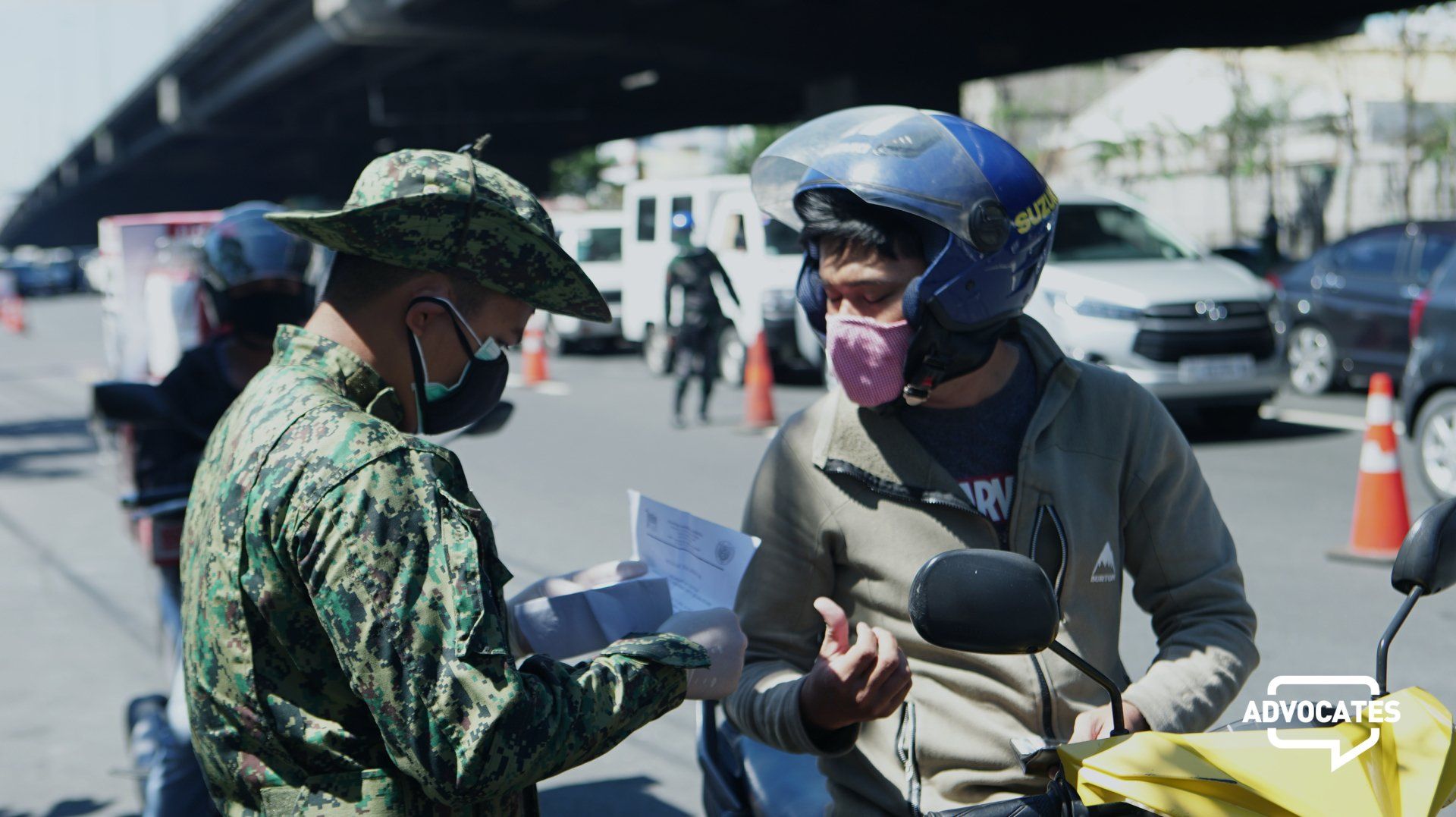AdvocatesTV • April 15, 2020
PNP to strictly implement ECQ

Photo Taken: March 21, 2020
Starting today, April 15, the Philippine National Police (PNP) will strictly implement the enhanced community quarantine (ECQ) in Luzon in response to the sudden spike of quarantine violators and the number of vehicles traveling on major thoroughfares.
Cabinet Secretary Karlo Nograles, spokesperson of the Inter-Agency Task Force for the Management of Emerging Infectious Diseases (IATF-EID), said President Rodrigo Duterte was compelled to order stricter implemention of the ECQ after he noticed that it was no longer being fully complied with.
Quoting reports from the PNP, Nograles said violators of the ECQ nationwide ballooned to 108,088 as of April 13.
“To address this and the reported increase in the number of vehicles traveling along EDSA and major thoroughfares ng Metro Manila at sa utos ng ating Pangulo, the Philippine National Police will strictly impose the policy on authorized persons outside the residence or APOR,” he said.
APOR includes medical and health workers, employees of establishments involved in essential services and other frontliners previously identified by the IATF.
Under the stricter implementation of the ECQ, Nograles said the PNP-Highway Patrol Group will check whether or not drivers and passengers of vehicles on the road are covered by the APOR list.
He said the PNP-HPG and Metropolitan Manila Development Authority (MMDA) will issue ordinance violation receipts (OVR) to drivers caught transporting unauthorized passengers.
“Kung mapansin niyo po, humigpit na ang ating mga police sa mga checkpoints ng ating mga barangay, sana po intindihin natin na magiging effective lang itong ECQ sa 'pag contain ng COVID-19 kung tayo ay hindi basta-basta na lang nakakaikot or nakakalabas,” Nograles said.
“This is all being done for us and for our families in order to prevent the virus from spreading. We appeal to everyone to please cooperate and as much as possible stay home. Yung mga lalabag, pasensya na,” he added.
He also appealed to the public to police their own neighbors and communities.
Nograles said in a virtual press conference on Tuesday morning that the increase in COVID-19 cases in the Philippines slowed down one month after ECQ was implemented in Luzon.
“It means that the case doubling of COVID-19 here in the Philippines is slower. That is more accurate now than before because we are conducting more tests,” Nograles said.
“The findings, if plotted on a graph, are that the case doubling time of the Philippines has slowed down. It’s less than three days. The positivity rate is also slowly decreasing and the percentage of new cases is bending downward,” he added.
Records from the Department of Health (DOH) show that the Philippines had 5,223 confirmed COVID-19 cases with 295 recoveries and 335 deaths as of Tuesday afternoon.

